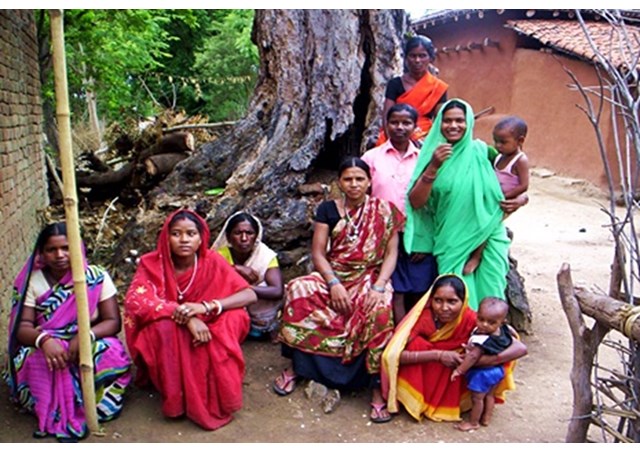
India’s impoverished tribal Catholics readily embrace Lenten austerities

Impoverished tribal or indigenous Catholics in eastern India’s Jharkhand state readily embrace Lenten austerities in addition to their already hard life. Eugene Lakra, an Oraon tribesman from the state's Gumla Diocese explained that during Lent their daily routine changes and they ban all kinds of recreation including singing and dancing and consuming rice wine, a customary drink among tribal people. Tribal people also avoid celebrations such as dancing during Lent and stop their daily evening gatherings. "Even when we walk back from fields, we don't sing or greet people loudly. We all keep a prayerful silence," he told UCANEWS. "Visitors to villages are often surprised to see the tribal people, who otherwise miss no occasion to sing and dance, remaining quiet during Lent as though they have forgotten how to sing," Lakra said.
Lakra’s neighbor Rakesh Kujur, also an Oraon, said it is "not so difficult to fast" because people in his community usually only eat twice a day due to poverty and only have meat on Sundays or special occasions. During Lent most families even give up on meat and fish on Sundays, although Sundays are usually excluded from Lenten abstinence in the Catholic Church. Catholics take their Lenten Fridays even further. Most villagers have just a single meal at noon - that too rice gruel with a little onion and salt. Adding restrictions without stopping farm work, they say, make them reflect on Christ's passion.
Gumla Diocese has 33 million people, 26 percent or 9 million of them belonging to tribes. The state's 1.5 million Christians, who from 5 percent of the population, are considered a stronger concentration than the national average of 2.3 percent. Industrialization and urbanization in Jharkhand has displaced 2.5 million people, at least 40 percent of them tribal, pushing them out of their natural lifestyles and further into poverty. The state faces food insufficiency and poverty as well. World Bank data reveals that 44 percent of people live below the poverty line, double the national average, and do not have enough to eat more than one meal a day.
"Unlike cities we don't have a lot of entertainment like television, radio, shopping malls or movie halls. Some of us have radio and mobile phones which we use to listen to songs. Playing cards is our normal entertainment," Kujur said, adding that most people avoid even cards during Lent. Sarita Kujur of Bardih parish, one of the oldest in Gumla Diocese said "during Lent our village looks like something sad has happened — a feeling of loss can be sensed as we increase our prayer life reflecting on Jesus who suffered for our sins." Many of the Catholics do charity work during Lent. "We save some rice each time we cook and keep it aside. During Holy Week we give it to the parish church. The parish either donates it to the poor or sells it to raise money," she said. (Source: UCAN)
| All the contents on this site are copyrighted ©. |


